Everything you’ll want to know about the clitoris, ovaries, the perineum…
Published 14 November 2017 by Caroline Grellier
As a preview, the French designer Fanny Prudhomme is presenting les Parleuses, a sexual education kit designed for her diploma at Ensci (a design school in Paris), a set of women’s sexual organs, hand-sewn or to be made.
It was all talk about earth and life sciences at the start of the school year 2017 with the release of the first school textbook representing the complete anatomy of a clitoris. A what? A clitoris, this near invisible part of women’s genitals, objet of desire but also taboo. And that’s putting it mildly since according to the report from the French High counsel for equality between men and women, one 15-year-old girl out of four does not know she has a clitoris…
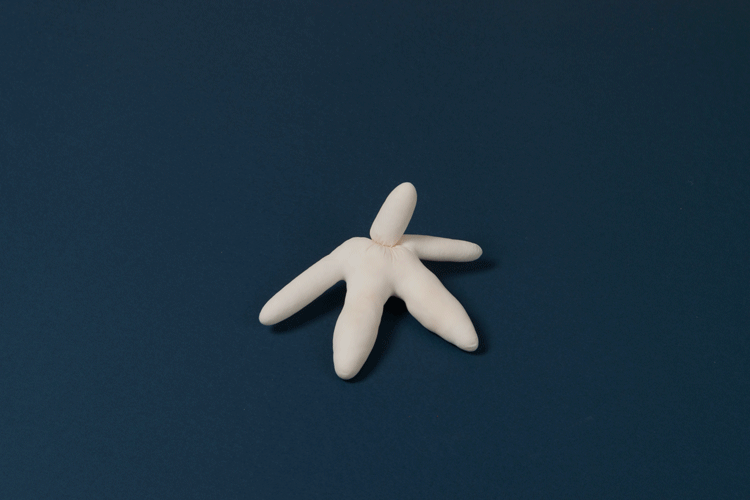
Women’s ignorance of their body reflects the consequence of a woeful lack of representations and tools with regards to sexual education. A 2001 law stipulates three lessons per year should be given on the subject (primary to high school), but it relies on the goodwill of teachers who in reality are unable to cope for lack of training, tools, materials. Not a single PDF file available!
In July 2016, the researcher Odile Fillod proposed the first clitoris printable in 3D (a project Makery had relayed (in French) before it made the buzz). In March 2017, Fanny Prudhomme, 26, imagined les Parleuses (the Talkers) as part of her diploma project for Ensci (Higher education national school for industrial creation). The name indicates the community that is being built up around the project as well as the kit and the website under development.
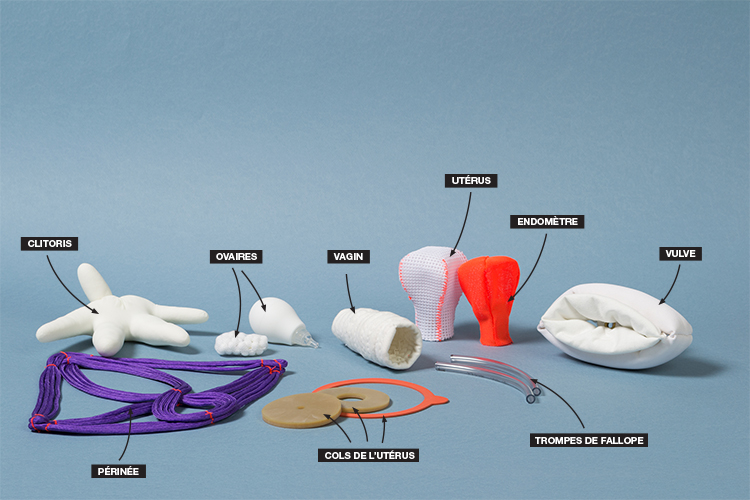
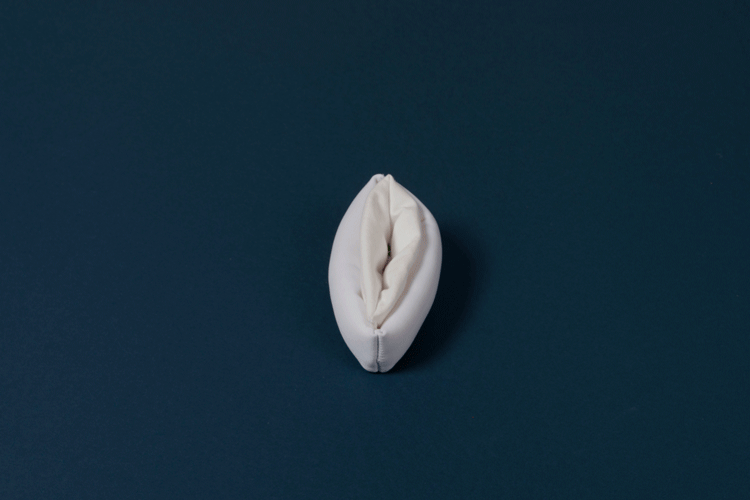
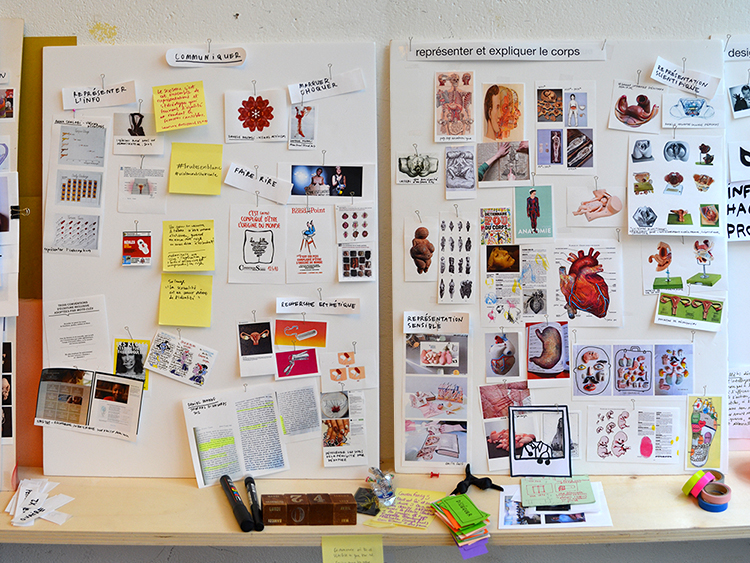
Image must stay upfront
The principle of the Parleuses kit, designed with actors of sexual education (socio-sexologist, teacher, midwife, etc.) is to represent each organ through its function.
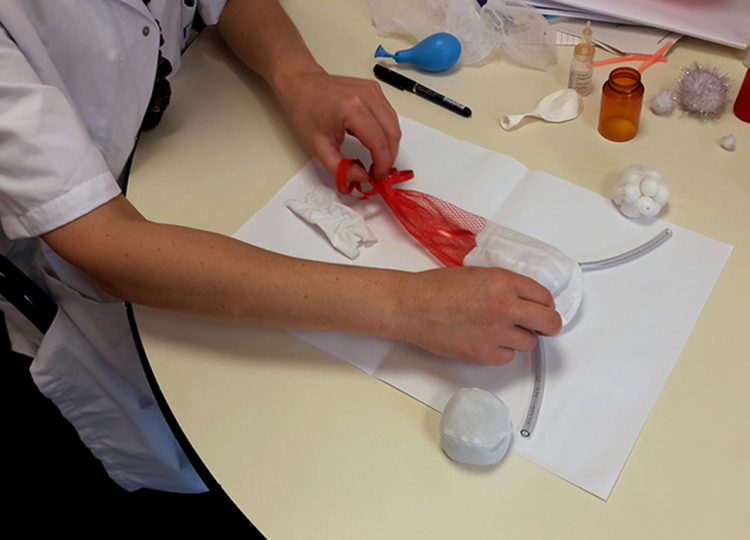
For example, the fallopian tubes have a duct role for the fertilized ovum and are represented by tubes; an ovary is materialized by a bag of marbles because, as soon as it is formed, it contains all the oocytes, but also represented by a pump because it throws out each month an oocyte having reached its maturity. The objective here is to create an image that one remembers in order to facilitate comprehension.
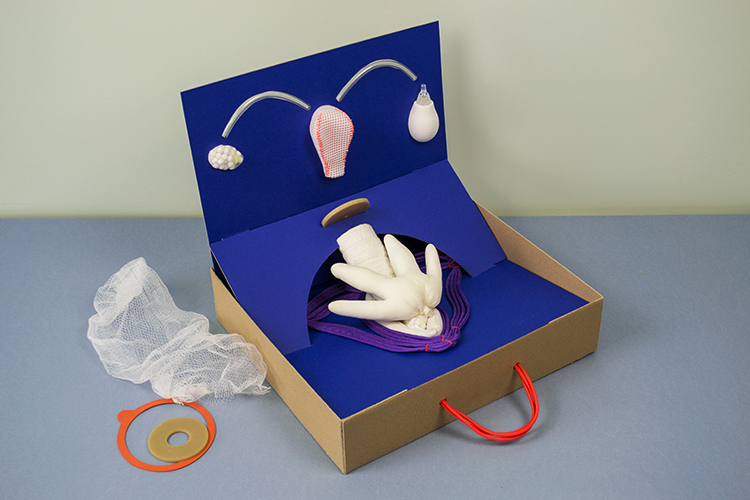
Intended for health professionals (doctors in private practices, maternity wards, birth centers, family planning centers, hospitals) as well as for teachers, associations, NGOs, the kit adapts to different contexts, from the ministry to the association with a limited budget. Polymorphic, it exists in two forms: a turnkey product made in France, and an open source project to reproduce it in any country.
Get your needles out!
The Parleuses kit (that contains representations of the vagina, the uterus, the endometrium, the vulva, the perineum, the cervix, ovaries and fallopian tubes) is counting on the association of manufactured objects and hand-sewn objects. For Fanny Prudhomme, “sewing is doubly justified: turnkey productions highlight the importance of French know-how in textile, the DIY kit calls upon a technique common to all cultures, sewing, very accessible and requiring very little equipment.”
Letting people make these objects with visible seams “is a way of empowering them to ensure they are not afraid to intervene on the object, modify it according to their uses and the subjects they are covering,” adds the designer with a strong social innovation label.
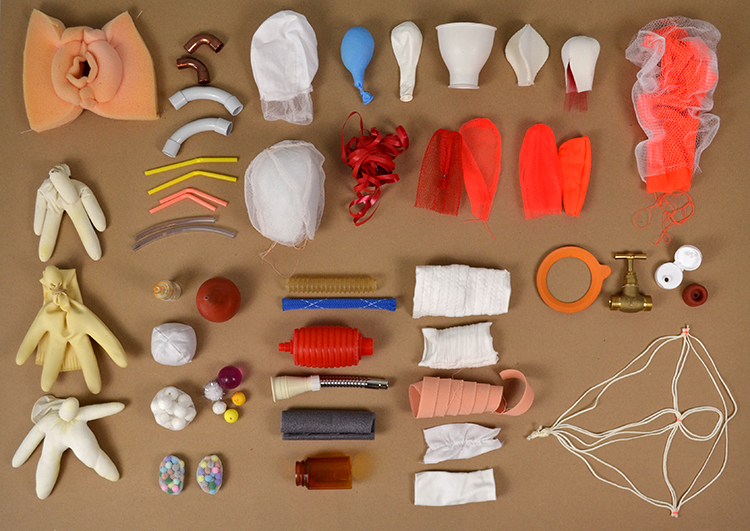
With the objective of open fabrication process in mind, Fanny Prudhomme offers patterns for sewing the objects but also the references of the manufactured objects (the cervix for example is a rubber gasket). Instructions that allow you to find the objects in any country.
Promoting the culture of the sexual organs
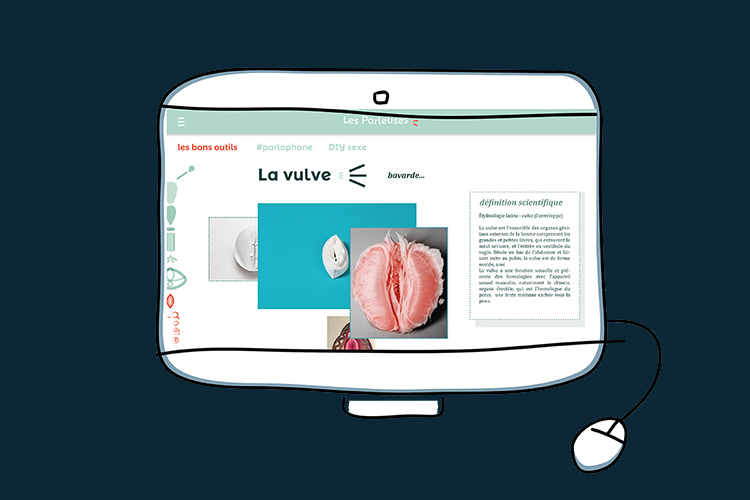
The project relies on a web platform under development that will supply the users of the kit as well as the addressees with different resources to dramatize the objects, tell stories by using GIFs, also develop vocabulary to nurture the culture around women’s sexual organs.
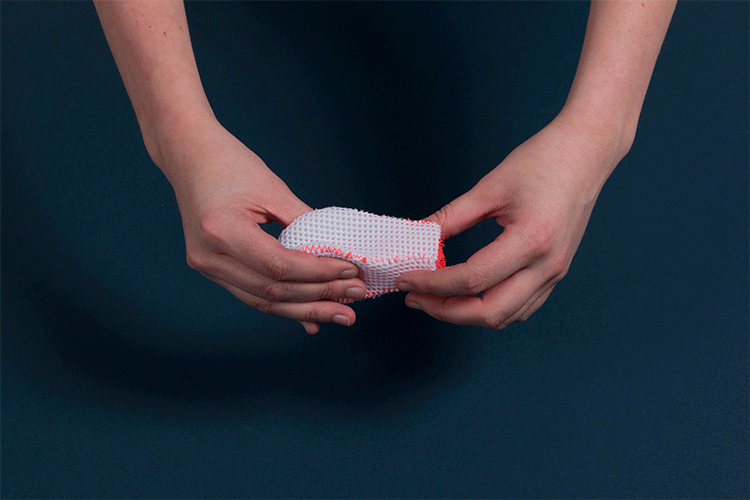
What of tomorrow? Les Parleuses are starting to make the first kits to test the tool during consultations and bring possible improvements. All support is welcome, to contribute to the website, fund, certify, test!
